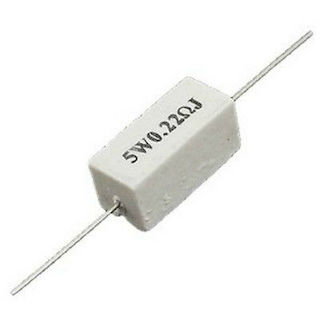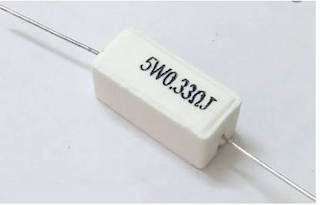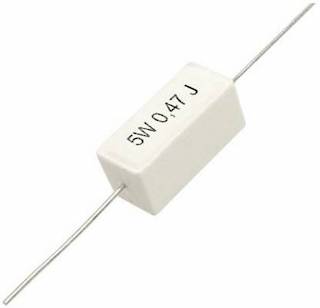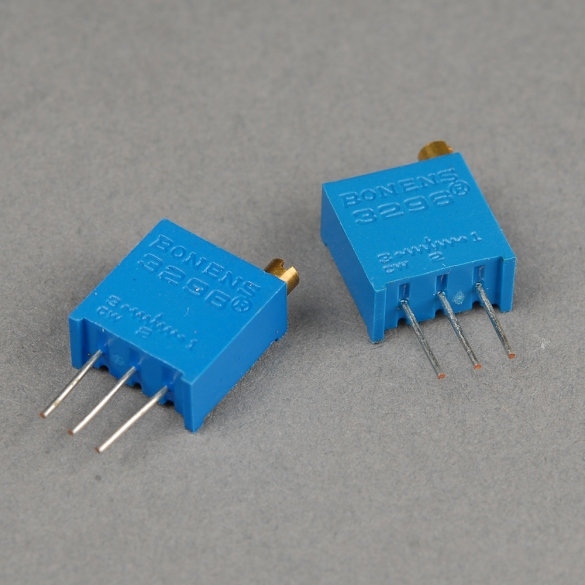- You have no items in your shopping cart
- Subtotal: ₦0.00
The 0.22 ohm 5W Cement Choke Resistor is a robust resistor designed to handle higher power dissipation and provide stable resistance in various electronic circuits. It is commonly used in power supplies, amplifiers, and other applications where low resistance and high wattage handling are required.
Key Features:
- Resistance Value: 0.22 ohms
- Power Rating: 5 watts
- Type: Cement resistor, which offers good thermal stability and reliability.
- Tolerance: Typically ±5% tolerance, ensuring accuracy in resistance value.
- Construction: Cement filled, providing excellent heat dissipation and mechanical stability.
- Mounting: Axial leaded for through-hole mounting on PCBs or as chassis-mounted components.
Technical Specifications:
- Resistance: 0.22 ohms
- Power Rating: 5 watts
- Tolerance: ±5%
- Temperature Coefficient: Low temperature coefficient for stable performance over temperature variations.
- Operating Temperature Range: Wide operating temperature range suitable for various electronic environments.
- Dimensions: Compact size suitable for integration into electronic circuits.
- Applications: Used in power supplies, motor controls, audio amplifiers, and other high-power electronic circuits requiring low resistance and high power dissipation.






